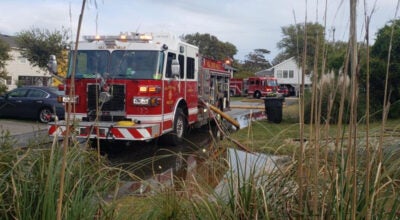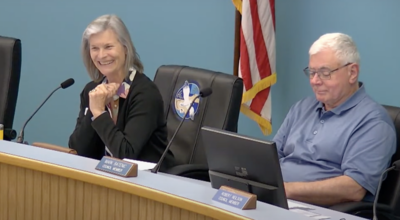Appeals court pulls back on North Carolina ‘ag-gag’ law ruling
Published 10:45 am Monday, February 27, 2023
|
Getting your Trinity Audio player ready...
|
By Gary D. Robertson, Associated Press
A federal appeals court on Thursday scaled back a lower-court ruling that threw out portions of a North Carolina law designed in part to prevent undercover employees at farms and other workplaces from taking documents or recording video.
A majority on the panel at the 4th U.S. Circuit Court of Appeals in Richmond, Virginia, said the trial judge went too far in 2020 when striking down four provisions related to the potentially secretive activities, saying they violated the First Amendment.
The decision by U.S. District Judge Thomas Schroeder was considered a victory for People for the Ethical Treatment of Animals and other animal rights groups, which had sued over the law passed by the General Assembly in 2015 and may use subterfuge to expose illegal or unethical conduct.
PETA has said it had wanted to conduct an undercover investigation at testing laboratories at the University of North Carolina at Chapel Hill but decided against it because of fear of prosecution under what’s called the “Property Protection Act.”
Thursday’s prevailing opinion narrowed Schroeder’s ruling by stating that the law only be blocked from enforcement against PETA — and likely others in similar situations — when its undercover work is being performed to conduct newsgathering activities.
But Senior Circuit Judge Henry Floyd said the appeals court would act cautiously on whether the questioned provisions should also be thrown out under other applications because it’s a recent law with little history of enforcement.
“Whatever the Act’s real applications beyond newsgathering, the material point today is that these questions remain unanswered, lurking in the background and warning us away from prejudging the entire Act in a pre-enforcement challenge,” Floyd wrote.
David Muraskin, an attorney representing the animal advocacy groups before the 4th Circuit, still called the majority opinion “an important win for our clients” by holding North Carolina “cannot create a law to target our clients’ right to expose a workplace’s illegal activity.”
The provisions subject anyone to civil penalties and damages who enters “the nonpublic areas” of a workplace for a reason other than truly seeking or holding employment and without authorization takes documents or records video or sound to “breach the person’s duty of loyalty to the employer.” It also applies to setting up an unattended camera or other surveillance. Other states have passed similar legislation labeled by some as “ag-gag” laws.
State government attorneys, who with the North Carolina Farm Bureau Federation defended the law in court, said the law was about protecting entities against worker disloyalty and trespassing, not stifling speech. Floyd wrote that some of the state’s arguments if agreed to would gut free speech protections.
While it’s clear that “all four challenged provisions burden newsgathering and publishing activities,” Floyd cautioned against ruling that all recordings are protective speech.
“We do not think it wise to go that far where the case itself does not call for a categorical pronouncement,” Floyd said in the opinion, adding that those could be addressed in future litigation. “For our purposes, it suffices to hold only that recording in the employer’s nonpublic areas as part of newsgathering constitutes protected speech.” Circuit Judge Albert Diaz agreed with Floyd’s opinion.
Circuit Judge Allison Rushing wrote a dissenting opinion, saying she would have upheld the law as constitutional as it relates to PETA’s undercover reporting tactics. And she described the law as having legitimate purposes such as preventing “sabotage, espionage, extortion, unfair competition and theft of trade secrets.”
Jared Goodman, a lawyer for the PETA Foundation, said that “PETA will continue to support the constitutional right of whistleblowers and investigators to serve the public and animals by exposing the horrific cruelty that occurs behind the scenes in this industry.”
State Attorney General Josh Stein’s office and the N.C. Farm Bureau Federation were reviewing the decision, according to spokespeople. Stein and UNC-Chapel Hill’s chancellor were also named as defendants. The Reporters Committee for Freedom of the Press and 17 media organizations also filed a brief urging the appeals court to accept Schroeder’s ruling.
Schroeder’s ruling found two of the four provisions were unconstitutional in all circumstances and the other two unconstitutional as applied to the plaintiffs. Thursday’s ruling came 16 months after oral arguments.
The broader 2015 law was enacted by the Republican-controlled legislature when it overrode GOP Gov. Pat McCrory’s veto.
SUBSCRIBE TO THE COASTLAND TIMES TODAY!




